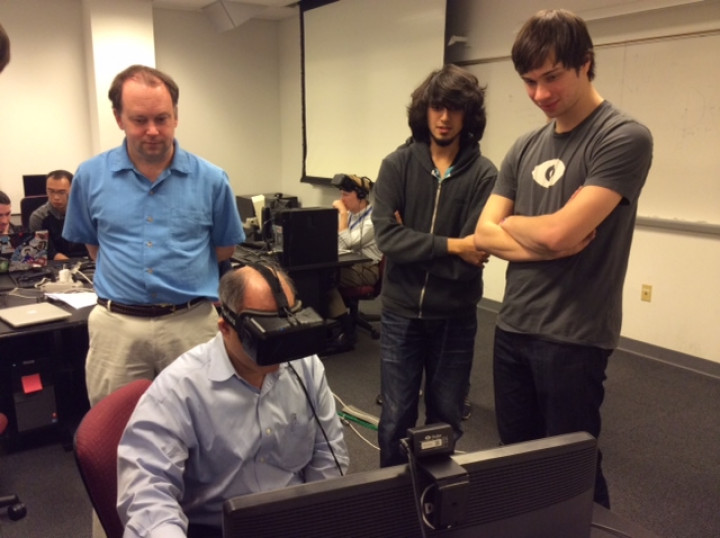Students dive into virtual reality
While most of us were home for winter, the Computer Science department hosted an intro to VR programming seminar. This seminar introduced students to the basics of the game engine Unity, as well as proper VR practices. Led by undergraduate Shariq Hashme, the students ranged in experience from CMSC132 to 400-level courses and most had little experience in VR. Hashme structured the seminar like a condensed, but open-ended, course. The first few days were all about the basics -- shaders, scripts, optimal VR practices. After that, he let the students loose to work on their own projects, giving advice and guidance when necessary. Hashme explained that his goal for the seminar was “showing that [virtual reality] doesn’t have to be so hard."
Well, mission accomplished, Shariq. Many students from the seminar remarked about how simple the programming turned out to be. One student, Richard Vook said that "the most interesting thing was learning how easy it is to make a game or environment." The freshman Computer Science student worked with a small group to create an air hockey simulator, set on top of a building in a big city. The game let two players, both in Oculus headsets, not only enjoy an air hockey game, but look out over the sprawling city below. The ease of Unity also impressed sophomore David Hagen, who worked on a single-player hedge maze. "The most interesting thing was how Unity worked in general," he explained. "It handled everything; you just had to put in the details."
As VR is still pretty new, it can be hard to find formal instruction. Small seminars such as this can be beneficial for newbies trying to break into new and scary fields. Of course, it also helps to have talented students willing to teach their fellow undergraduates. Shariq Hashme is not only an avid hacker and founder of the Terrapin Hackers, he is also a former intern at Oculus VR (yes, the Oculus VR). So it's a no-brainer why the Computer Science department would bring him on to help open up new technologies for students. Branching out into emerging fields can be daunting but rewarding, and having a department that works so hard to make it accessible goes a long way.
Virtual reality is a long way from showing up on the registrar's website, but if you're interested, that shouldn't hold you back. The department has the VR headsets from the seminar still, and there many tutorials available online to learn the basics. The best way to get started? Just diving in.
Alex BenDebba '16
The Department welcomes comments, suggestions and corrections. Send email to editor [-at-] cs [dot] umd [dot] edu.
